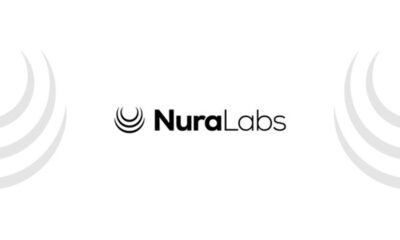Home & Family
The Importance of Gas Line Services in Modern Kitchens

Gas line services have become increasingly important in the modern kitchen due to the many benefits they offer. From cost savings to convenience, gas line services have revolutionized the way we cook and use energy in our homes. In this article, we will explore why gas line services are essential for the modern kitchen and what benefits they bring to homeowners.
Table of Contents
- Introduction
- What are gas line services?
- Benefits of gas line services
Cost savings
Efficiency
Convenience
- Types of gas line services
Natural gas
Propane gas
- Installation process of gas line services
Safety precautions
Hiring a professional
- Maintenance of gas line services
Regular inspections
Cleaning and upkeep
- Common gas line problems and solutions
Gas leaks
Pilot light problems
Clogged burner ports
- Gas line services vs. electric services
Energy efficiency
Cost comparison
- Conclusion
- FAQs
What are gas line services?
Gas line services refer to the installation, maintenance, and repair of gas lines in homes and buildings. Gas lines are essential for providing natural or propane gas to appliances such as stoves, ovens, and water heaters. Gas line services are typically performed by licensed professionals who have the knowledge and expertise to safely install and maintain gas lines.
Benefits of gas line services
Cost savings
One of the main benefits of gas line services is the cost savings they offer. Gas is generally cheaper than electricity, which means that using gas appliances can significantly reduce your energy bills. Gas stoves, for example, are much more energy-efficient than electric stoves, as they heat up faster and distribute heat more evenly.
Efficiency
Gas appliances are also much more efficient than electric appliances. Gas stoves can heat up food faster than electric stoves, which means you can cook your meals in less time. Gas water heaters are also more efficient than electric water heaters, as they can heat up water much faster and maintain a constant temperature.
Convenience
Gas appliances are also more convenient to use than electric appliances. Gas stoves, for example, provide instant heat, which means you can start cooking right away without having to wait for the stove to heat up. Gas water heaters also provide hot water instantly, which means you don’t have to wait for the water to heat up.
Types of gas line services
Gas line services can be divided into two types: natural gas and propane gas.
Natural gas
Natural gas is a fossil fuel that is delivered to homes through pipelines. It is typically used for heating, cooking, and hot water. Natural gas is cheaper than propane gas and is available in many areas.
Propane gas
Propane gas is a byproduct of natural gas processing and petroleum refining. It is typically stored in tanks and is used for heating, cooking, and hot water. Propane gas is more expensive than natural gas but is available in areas where natural gas is not available.
Installation process of gas line services
Gas line installation is a complex process that should only be performed by licensed professionals. Here are some safety precautions to keep in mind when installing gas lines:
- Make sure the gas supply is turned off before installing gas lines.
- Use high-quality gas lines and fittings to prevent leaks.
- Install gas lines in well-ventilated areas to prevent the buildup of gas.
- Use a gas detector to detect any leaks.
When installing gas lines, it is important to hire a professional who has the necessary knowledge and expertise to do the job safely and efficiently.
Maintenance of gas line services
Regular maintenance is crucial for ensuring the safety and efficiency of gas line services. Here are some maintenance tasks that should be performed on a regular basis:
Regular inspections
Gas lines should be inspected at least once a year to check for any leaks or damage. A licensed professional should perform the inspection to ensure that the gas lines are in good condition.
Cleaning and upkeep
Gas appliances should be cleaned and maintained regularly to ensure that they are working efficiently. Burner ports should be cleaned to prevent clogs, and the pilot light should be inspected to ensure that it is functioning properly.
Common gas line problems and solutions
Gas leaks
Gas leaks are a serious problem that can cause fires, explosions, and carbon monoxide poisoning. If you smell gas in your home, turn off the gas supply immediately and call a licensed professional to inspect your gas lines.
Pilot light problems
Pilot lights can go out, which can prevent your gas appliances from functioning properly. If your pilot light goes out, follow the manufacturer’s instructions to relight it. If you are unsure how to do this, call a licensed professional to assist you.
Clogged burner ports
Clogged burner ports can prevent your gas appliances from heating up properly. If you notice that your stove or oven is not heating up evenly, check the burner ports for any clogs. Use a wire brush to clean out the ports and ensure that they are free of debris.
Gas line services vs. electric services
Energy efficiency
Gas line services are generally more energy-efficient than electric services. Gas appliances heat up faster and distribute heat more evenly, which means they use less energy to perform the same tasks as electric appliances.
Cost comparison
Gas line services are generally cheaper than electric services, especially when it comes to heating and cooking. Gas stoves and water heaters are much more cost-effective than their electric counterparts.
Conclusion
Gas line services are essential for the modern kitchen due to the many benefits they offer. They are more cost-effective, efficient, and convenient than electric services. However, gas line services should only be installed and maintained by licensed professionals to ensure their safety and efficiency.
FAQs
Q: Can I install gas lines myself?
A: No, gas line installation should only be performed by licensed professionals.
Q: Is natural gas or propane gas better?
A: It depends on your location and availability. Natural gas is generally cheaper, but propane gas is more readily available in areas where natural gas is not available.
Q: How often should I have my gas lines inspected?
A: Gas lines should be inspected at least once a year by a licensed professional.
-

 Press Release7 days ago
Press Release7 days agoIn2space Launches Campaign to Make Space Travel Accessible for All
-

 Press Release3 days ago
Press Release3 days agoNura Labs Files Revolutionary Patent: AI-Powered Wallet Solves the $180 Billion Crypto Staking Complexity Crisis
-

 Press Release19 hours ago
Press Release19 hours agoGlobal Compound Feeds and Additives Industry Report: Market Expansion and Competitive Insights to 2035
-

 Technology19 hours ago
Technology19 hours agoWhat to Know Before Switching Cell Phone Network Services in 2025














